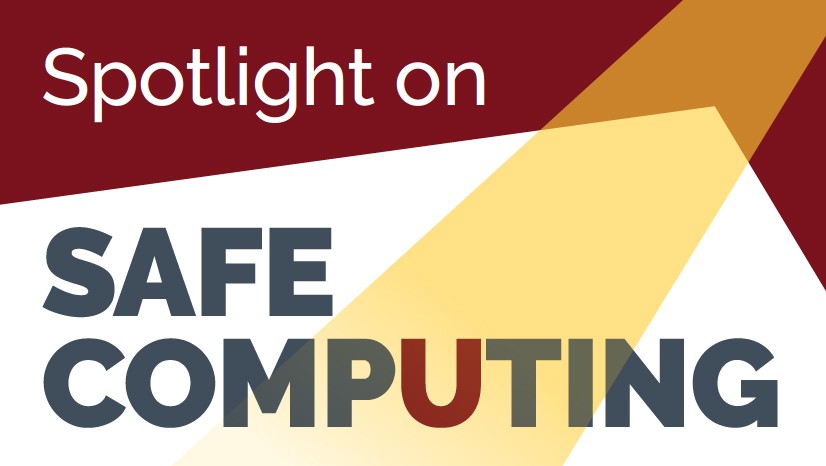
Stay secure at home and on the road

What's your dream travel destination? The sunny, sandy shores of Hawaii, Fiji, or Aruba? The snowy peaks of the Swiss Alps? The magic of Disney World? The bustle of New York City, Mumbai, or Hong Kong?
If you were on a trip to your top travel spot, you wouldn't want to login to your work email or submit an assignment, right? But you might have to access University networks or applications while you're away to do just that, or handle an emergency, or just to check-in with family, friends, or co-workers. Even if your "away" isn't very far, like your family’s place in the suburbs or your apartment in Uptown, you are connecting to the University when you're off campus.
There are a few ways you can stay secure, whether you're on campus, at home, or far, far away.
Use secure WiFi
Be wary of public WiFi. They are unsecured connections and you run the risk of having your personal information tracked or collected when browsing on unknown networks. Be especially careful when entering passwords or accessing personal and financial information online. Avoid using public computers when possible as well. Always search out a secure, known WiFi network, such as eduroam. eduroam is the preferred secure WiFi network at the University of Minnesota. Once you connect here (using your full University email address and password), you can easily access secure WiFi at partner institutions worldwide. eduroam is a secure WiFi connection that you can trust. Learn more about eduroam and how to connect.
Use VPN
VPN stands for Virtual Private Network, and allows you to connect to the University network while you are off campus. It encrypts the information that passes between you and the University while you are connected. A VPN network is necessary when you are connecting from a non-University Internet Service Provider, using unsecured WiFi, transmitting sensitive data, accessing restricted University resources, or want a secure connection. Learn how to download and connect to a University-supported VPN client.
Disable WiFi, GPS, and Bluetooth
Disable WiFi, GPS, and Bluetooth functions and unused apps on your devices when not in use. These services can be used to potentially launch attacks against your device, and can be used to locate and introduce malware.
Keep your devices safe
Small devices such as cell phones, laptops, hard drives or flash drives, and tables are susceptible to theft or loss, especially while traveling. When unattended, keep your devices secure or locked up. Create unique secure passwords or passcodes for each of your devices. Learn how to create a strong password and the top 10 ways to secure your mobile devices.
So whether you're at home or away, at work or at play, in Italy or Thailand... Use these secure tips to make sure you're staying safe and secure while you're online. These simple steps could help you protect important University data and your digital identity, too. Bon voyage!
More Resources
eduroam
eduroam is the preferred secure WiFi network at the University of Minnesota, and is available to UMN students, faculty, and staff. Use your full University email address and password to log in. Learn more about eduroam.
VPN
VPN stands for Virtual Private Network, and allows you to connect to the University network while you are off campus. Learn how to download and connect to a University-supported VPN client.
Phishing blog
Stay up to date on the most common and recent phishing scams to target the University of Minnesota by perusing the phishing blog.
Safe Computing at the University of Minnesota
Explore the many ways to stay secure while online at the University of Minnesota.